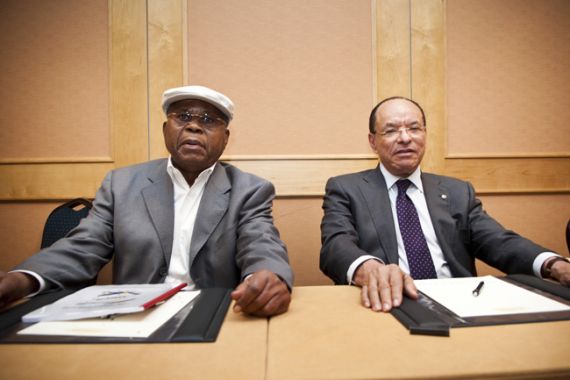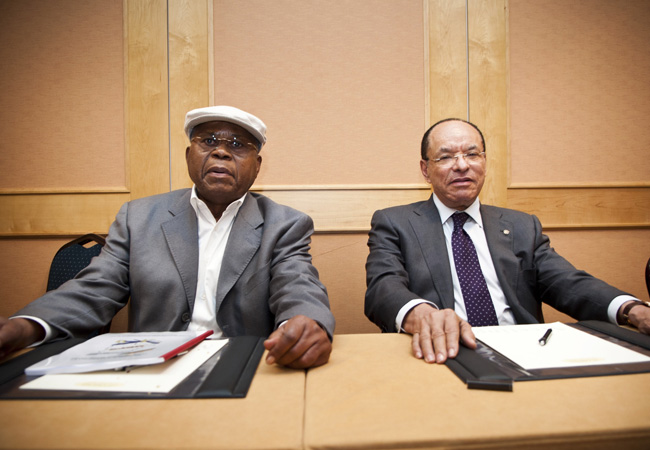Profile: Etienne Tshisekedi
After three decades in politics, the veteran is widely regarded as the biggest threat to incumbent Joseph Kabila.

 |
| Tshisekedi (left) is expected has a lot of support in the capital but winning over the east will be a challenge [EPA] |
Widely regarded as the DRC’s main opposition leader, Etienne Tshisekedi heads up the Union for Democracy and Social Progress party (UDPS).
Tshisekedi served in governments during Mobuto Sese Soko’s decades-long rule, but became a focal point for opposition when he formed the UDPS in 1980 to counter Mobuto’s party, serving briefly as prime minister on three occasions.
When Laurent Kabila became president in 1997, after Mobuto was usurped from power, political parties were banned until scheduled general elections in 1999.
Tshisekedi was placed on a list drawn up by a constitutional committee of people who could not run for president and was ultimately forced into internal exile in February 1998 after being accused of violating a ban on party politics. He was confined to his village, Mupompa.
Boycotting elections
Tshisekedi refused to join the Kabila government, even after Joseph Kabila took over following the assassination of his father in 2001. He also boycotted the constitutional referendum in 2005 and the elections in 2006.
The UDPS asked Tshisekedi to be their presidential candidate in 2009 and he confirmed his candidacy in late 2010 but has been rallying to assemble opposition solidarity in a bid to oust Kabila.
His main campaign points to improving governance, including democratic values and basic essentials like water and electricity. Tshisekedi has often claimed that his credibility lies in the number of years (closing in on three decades) he has fought as the opposition candidate in the DRC.
In early November 2011, just weeks before the elections, Kabila’s government shut down a television station that broadcast an opposition call for fighters to break down prison walls and escape.
Tshisekedi was reported to have given the government 48 hours before he would “ call fighters across the country to break down prison doors and release their comrades”.
Also in early November, Tshisekedi was reportedly in South Africa, meeting and garnering support from senior members of the African National Congress (ANC).
His spokesperson Leonard Mulunda told Reuters that Tshisekedi was in the country to discuss how the party would support his campaign. It was also revealed that South African businessmen had arranged three planes for Tshisekedi to fly around the DRC to campaign.
Tshisekedi is expected to draw a lot of support from the capital and Bas Congo but will find it difficult to secure votes from the eastern DRC.